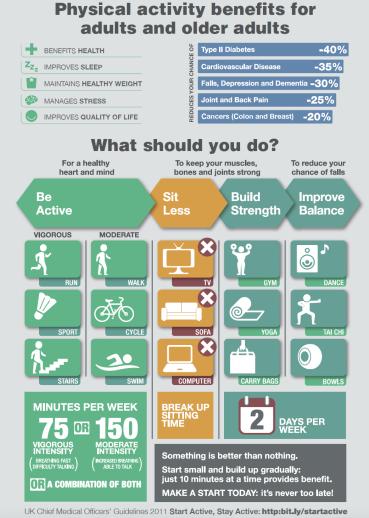Shoulder instability
Dealing with shoulder instability
Being active
Keeping active and fit will benefit your overall recovery. If you have been advised to avoid your normal sports, then consider other ways of maintaining your fitness in the meantime. There is no set approach that has been shown to be the best so feel free to try different types of exercise and activity. Be guided by what you enjoy and what you feel able to start.
If you are local to Sheffield and you would like support to increase your physical activity, then you can:
- Self-refer to Move Well for personalised support and access to a wide range of physical activity opportunities, tailored to your specific needs and preferences.
- Find sport, leisure and activity groups in your local area.
- For more activity tips, visit our physical activity page under the wider health section of the website..
Heat or Ice treatment
Heat packs
A warm pack can help ease muscle tightness and pain. Use a microwaveable wheat bag or hot water bottle wrapped in a towel for 15-20 minutes, 2-3 times a day. Avoid using heat on swollen areas.
Ice packs
Ice can numb pain. Apply an ice pack (or frozen vegetables wrapped in a towel) for up to 10 minutes, 2-3 times a day.
Pain medication
Pain medication can help you stay mobile. Consult your GP or pharmacist for advice.
Your lifestyle
A healthy body speeds up recovery. A balanced diet, regular activity, not smoking, and maintaining a healthy weight all help. Small lifestyle changes can improve recovery and reduce future pain. For more on healthy lifestyle, check out our Wider health section.
Further Treatment
Physiotherapy
Evidence shows that physiotherapy is the best first treatment for shoulder instability. If you’re struggling, see your GP for a referral, and you’ll receive a personalised rehabilitation plan with professional support.
Recovery time varies, but typically, it takes 3-6 months of consistent rehabilitation to see improvements, and 6-12 months for a full recovery. Be patient and work closely with your physiotherapist to get the best results.
Surgery
Surgical interventions for shoulder instability are seldom required as fortunately most people benefit from conservative treatment. If you’re experiencing very frequent dislocations then speak to your health care professional, as they can guide you with your treatment options.
